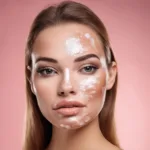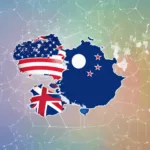8 February 2024
Environmental Protection Agency takes a proactive approach to protect people and the environment
In a groundbreaking move, the New Zealand Environmental Protection Agency (EPA) has announced a ban on the use of per- and polyfluoroalkyl substances (PFAS) in cosmetic products. This decision, set to take effect in 2027, positions New Zealand as one of the first countries in the world to take such a proactive step towards protecting its citizens and the environment from potential harm caused by PFAS. The ban comes as part of the EPA’s ongoing efforts to prioritize the safety of cosmetic products and mitigate the potential risks associated with PFAS.
Understanding PFAS and their use in cosmetics
PFAS, commonly found in products such as nail polish, shaving cream, foundation, lipstick, and mascara, are added to enhance the texture and durability of cosmetic products. These substances are known for their ability to smooth the skin, increase spreadability, and provide water resistance. However, recent research has raised concerns about the potential health and environmental risks associated with PFAS.
The precautionary approach taken by the EPA
Although research suggests that PFAS are only present in a limited number of cosmetic products, the EPA has chosen to adopt a precautionary approach to address the potential risks. By implementing the ban on PFAS in cosmetics, the agency aims to ensure the safety of consumers and protect the environment from any adverse effects that may arise from the use of these substances.
The broader implications of the ban
The EPA’s decision to ban PFAS in cosmetic products is just one aspect of its comprehensive approach to safeguarding public health and the environment. In addition to the ban, the agency is also phasing out the use of PFAS in firefighting foams and conducting extensive testing to assess background levels of PFAS in the New Zealand environment. These measures demonstrate the EPA’s commitment to tackling the issue of PFAS holistically and proactively.
Strengthening the Cosmetic Products Group Standard
The ban on PFAS is part of a series of updates made to the Cosmetic Products Group Standard, aimed at ensuring the safety of cosmetic products in New Zealand. By continuously reviewing and improving regulations, the EPA strives to maintain the highest standards of consumer protection and environmental sustainability. This proactive approach sets a precedent for other countries to follow in safeguarding public health and the environment.
Global implications and future outlook
New Zealand’s ban on PFAS in cosmetic products sends a strong message to the global community about the importance of prioritizing consumer safety and environmental protection. As more research emerges on the potential risks associated with PFAS, it is likely that other countries will follow suit in implementing similar restrictions. This collective effort will contribute to a safer and more sustainable cosmetics industry worldwide.
Conclusion:
The New Zealand EPA’s ban on PFAS in cosmetic products marks a significant milestone in the ongoing battle to protect people and the environment from potentially harmful substances. By taking a precautionary approach and prioritizing consumer safety, New Zealand sets an example for other nations to follow. As the global community becomes increasingly aware of the potential risks associated with PFAS, it is crucial for governments and regulatory bodies to take proactive measures to ensure the safety and well-being of their citizens. The ban on PFAS in cosmetic products is a step in the right direction, signaling a commitment to a safer and more sustainable future for the cosmetics industry.



